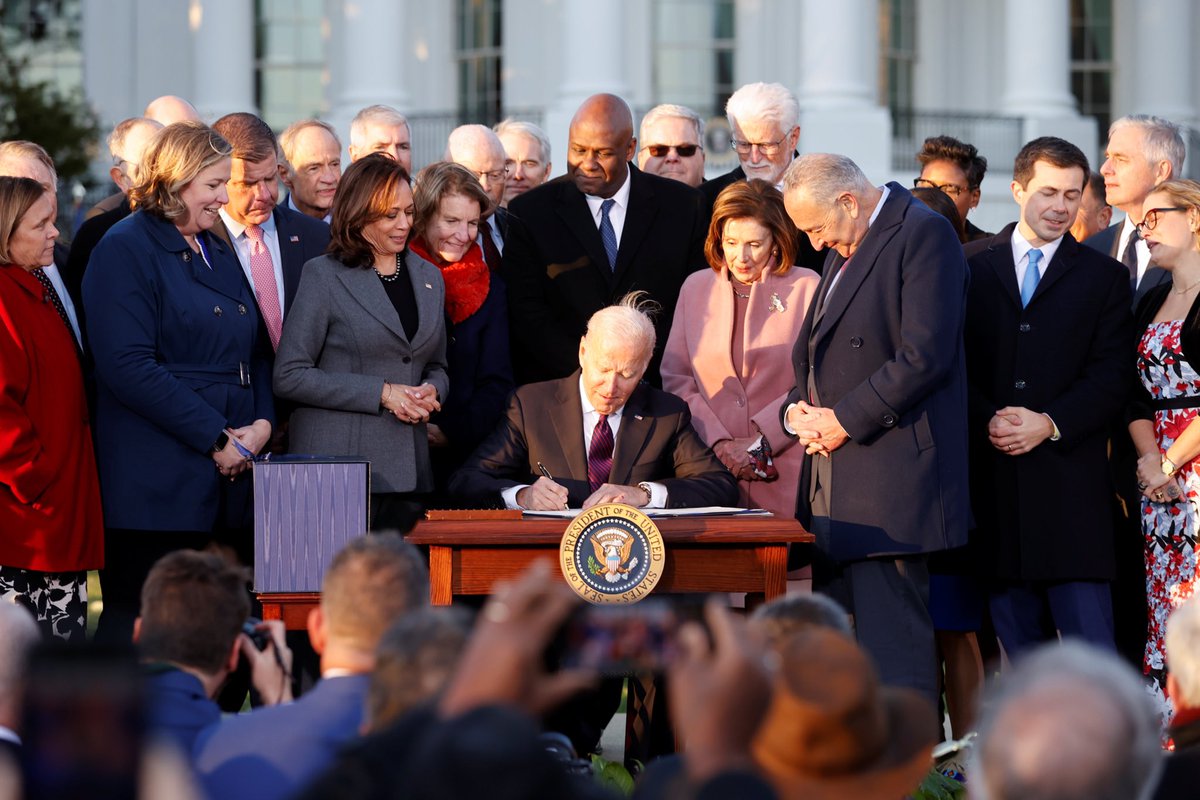
The Infrastructure Investment and Jobs Act (IIJA), originally in the House as the INVEST in America Act (H.R. 3684), is a US federal statute enacted by the 117th United States Congress and signed into law by President Joe Biden on November 15, 2021. #DemHistory #WhyIVoteDem 

The Infrastructure Investment and Jobs Act (IIJA), provisions:
•110 billion for roads, bridges and other major projects;
•$11 billion in transportation safety programs;
•$39 billion in transit modernization and improved accessibility..#DemHistory #WhyIVoteDem
•110 billion for roads, bridges and other major projects;
•$11 billion in transportation safety programs;
•$39 billion in transit modernization and improved accessibility..#DemHistory #WhyIVoteDem

The Infrastructure Investment and Jobs Act (IIJA):
•$66 billion in rail;
•$7.5 billion to build a national network of electric vehicle chargers;
•$73 billion in power infrastructure and clean energy transmission and
•$65 billion for broadband development. #DemHistory
•$66 billion in rail;
•$7.5 billion to build a national network of electric vehicle chargers;
•$73 billion in power infrastructure and clean energy transmission and
•$65 billion for broadband development. #DemHistory

The Infrastructure Investment and Jobs Act (IIJA): The bill also makes the Minority Business Development Agency a permanent agency. #DemHistory #WhyIVoteDem 

• • •
Missing some Tweet in this thread? You can try to
force a refresh




















